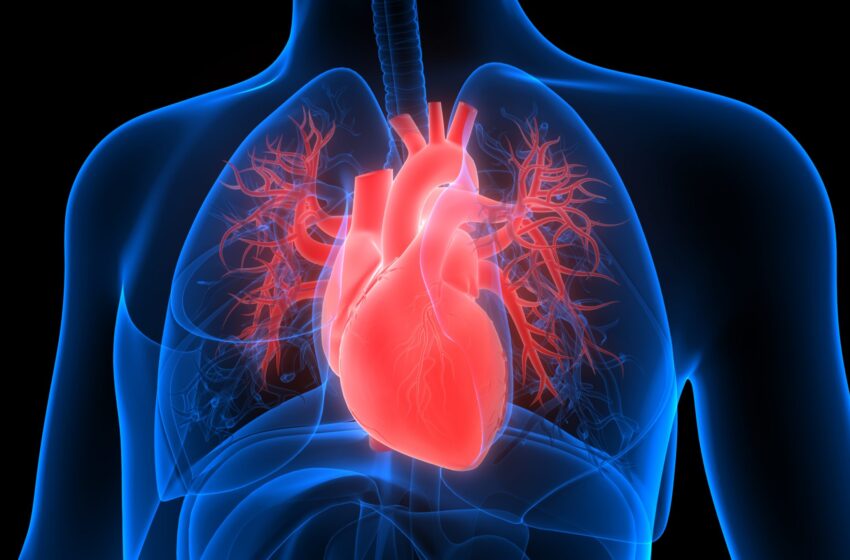Understanding Congestive Heart Failure

Congestive heart failure (CHF) is a serious medical condition where the heart struggles to pump blood effectively. Despite its name, it doesn’t mean the heart has stopped working—it simply means it isn’t working as well as it should. This can lead to fatigue, shortness of breath, and fluid buildup in the body.
In this article, we’ll explore what congestive heart failure is, its symptoms, stages, causes, and treatment options. We’ll also discuss how it affects both humans and pets, along with important considerations for life expectancy and care.
What Is Congestive Heart Failure?
Congestive heart failure occurs when the heart muscle weakens or stiffens, making it difficult to pump blood efficiently. This inefficiency causes blood to back up, leading to fluid retention in the lungs, legs, and other tissues—hence the term “congestive.”
CHF can develop gradually over time due to conditions like high blood pressure, coronary artery disease, or previous heart damage. While it’s a chronic condition, proper management can help improve quality of life.
Congestive Heart Failure Symptoms
Recognizing the symptoms of congestive heart failure early can lead to better outcomes. Common signs include:
-
Shortness of breath (especially during activity or while lying down)
-
Persistent coughing or wheezing (sometimes with white or pink mucus)
-
Swelling in the legs, ankles, or feet (edema)
-
Fatigue and weakness
-
Rapid or irregular heartbeat
-
Sudden weight gain (from fluid retention)
-
Reduced ability to exercise
If you or a loved one experience these symptoms, consulting a healthcare provider is crucial for proper diagnosis and treatment.
The 4 Stages of Congestive Heart Failure
CHF progresses in stages, classified by the American College of Cardiology and American Heart Association (ACC/AHA) as follows:
Stage A: High Risk Without Symptoms
-
No heart damage yet, but risk factors (like diabetes or hypertension) are present.
-
Early intervention can prevent progression.
Stage B: Structural Heart Disease Without Symptoms
-
The heart shows signs of damage (e.g., weakened pumping), but symptoms aren’t noticeable yet.
-
Medications and lifestyle changes are often recommended.
Stage C: Structural Disease With Symptoms
-
Clear symptoms like fatigue, swelling, and breathing difficulties appear.
-
Treatment focuses on managing symptoms and slowing progression.
Stage D: Advanced Heart Failure
-
Severe symptoms persist despite medical treatment.
-
Advanced therapies (like surgery or specialized devices) may be necessary.
Understanding these stages helps doctors tailor treatment plans effectively.
What Causes Congestive Heart Failure?
Several factors contribute to CHF, including:
-
Coronary artery disease (blocked arteries reduce blood flow to the heart)
-
High blood pressure (forces the heart to work harder)
-
Previous heart attack (damages heart muscle)
-
Heart valve disease (leaky or narrow valves strain the heart)
-
Diabetes, obesity, and chronic kidney disease (increase CHF risk)
-
Certain medications or lifestyle habits (like excessive alcohol use)
Addressing these underlying causes can help manage or even prevent CHF.
Congestive Heart Failure Treatment Options
While there’s no cure for CHF, treatments aim to relieve symptoms and improve heart function. Common approaches include:
Medications
-
Diuretics (reduce fluid buildup)
-
ACE inhibitors or ARBs (relax blood vessels)
-
Beta-blockers (slow heart rate and reduce strain)
-
SGLT2 inhibitors (recently found to help heart failure patients)
Lifestyle Changes
-
Low-sodium diet (reduces fluid retention)
-
Regular, moderate exercise (strengthens the heart)
-
Quitting smoking and limiting alcohol
-
Monitoring weight and symptoms daily
Medical Procedures
-
Implantable devices (pacemakers, defibrillators)
-
Surgery (valve repair, bypass, or heart transplant in severe cases)
Working closely with a healthcare provider ensures the best treatment plan.
Congestive Heart Failure in Dogs
CHF isn’t just a human condition—it affects dogs too, especially older ones or breeds prone to heart disease (like Cavalier King Charles Spaniels).
Symptoms in Dogs
-
Coughing (especially at night)
-
Difficulty breathing
-
Lethargy and reduced activity
-
Swollen abdomen (from fluid buildup)
When to Consider Euthanasia
Deciding when to put down a dog with CHF is heartbreaking. Signs that their quality of life is declining include:
-
Constant distress or inability to rest
-
No interest in food or favorite activities
-
Severe breathing difficulties
Consulting a veterinarian helps guide this difficult decision with compassion.
Congestive Heart Failure Life Expectancy
Life expectancy with CHF varies based on age, overall health, and disease stage.
-
Mild CHF (with proper care): Many live 10+ years.
-
Moderate to severe CHF: Average survival is 2-5 years.
-
Advanced CHF (Stage D): Life expectancy may be under a year.
For elderly patients, such as an 85-year-old with congestive heart failure, other health factors also play a role. Early diagnosis and treatment improve outcomes.
Signs of Impending Death from CHF
In late-stage CHF, certain signs may indicate the body is shutting down:
-
Severe, unrelenting shortness of breath
-
Cold hands and feet (poor circulation)
-
Confusion or disorientation (from reduced oxygen)
-
Little to no urine output (kidneys failing)
Palliative or hospice care can provide comfort during this time.
Final Thoughts
Congestive heart failure is a manageable but serious condition. Recognizing symptoms early, adhering to treatment, and making lifestyle adjustments can significantly improve quality of life. Whether in humans or pets, understanding CHF helps in making informed, compassionate decisions.
If you suspect you or a loved one may have CHF, don’t wait—seek medical advice promptly. With the right care, many people continue to live fulfilling lives despite this diagnosis.


